Iran’s filmmakers are defying strict censorship laws to scoop festival prizes and woo global buyers and audiences.
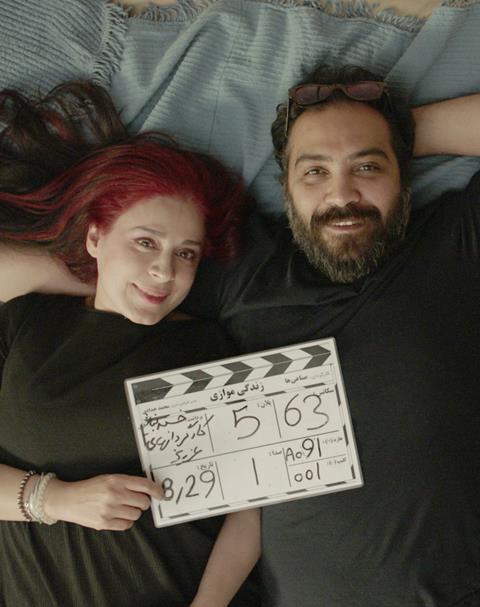
Despite facing prison, floggings, bans and other consequences, Iran’s filmmakers continue to make movies – some of which are selected by major festivals, amass awards and draw wide audiences across the globe.
The Seed Of The Sacred Fig director Mohammad Rasoulof has been forced to flee Iran, and the filmmakers who stay in the country must navigate a complex system that sees creativity restricted by censorship laws. These have tightened further since the death in 2022 of Jina Mahsa Amini, which launched protests and the revolutionary ‘Woman, Life, Freedom’ movement.
Films made officially in Iran first need to obtain a production permit from the Ministry of Culture and Islamic Guidance, then a separate screening permit to show the finished product. Authorisation is denied if the film negatively portrays religious or political figures; criticises the government or Islam; shows characters consuming alcohol, having sex or engaging in any romantic gestures including kissing or affectionate touching; or shows women without hijabs, singing or dancing.
This means many filmmakers are choosing to make films without official permission, and the gap between state-approved and underground cinema continues to widen.
Like Rasoulof, Iranian filmmakers Maryam Moghadam and Behtash Sanaeeha shot much of their film My Favourite Cake, a romantic comedy about a 70-year-old woman invigorating her love life, in secret.
It premiered in Berlinale Competition last February, winning the Fipresci prize. However, the directors were prohibited from leaving Iran to attend the premiere – something that also happened when their previous film, Ballad Of A White Cow, competed in Berlin in 2021 – and were placed under another travel ban in September. My Favourite Cake has faced a backlash in Iran for the inclusion of scenes of women not wearing a hijab, as well as characters drinking alcohol and dancing.
“We do not give in to these censors despite the consequences,” the directors tell Screen, noting it is “no longer necessary to waste time and energy” to gain official approval to move forward with a project.
Moghadam and Sanaeeha continue to enjoy success with their work; France’s Totem Films has sold My Favourite Cake to more than 40 territories and it has performed well in several, including the UK ($256,000 for Curzon), Sweden ($434,000 for Triart) and Germany ($826,000 for Alamode). Yet the filmmakers are under no illusion as to the effect Iran’s censorship laws have on many of their fellow creatives.
“Contrary to what many people say about Iranian cinema, censorship never leads to more creativity, but in fact suppresses it,” they say. “Each artist is put in a situation of pointless conflict. There are so many directors who could not make their films in Iran in the last 45 years.”
No hesitation
Iranian director Ali Ahmadzadeh has also been forced to work outside of the system, secretly shooting his 2023 thriller Critical Zone on the streets of Tehran. The film, which follows a man dealing drugs in the city’s underworld, premiered at Locarno, where it won the Golden Leopard. Ahmadzadeh was banned from travelling to Switzerland to present his film in person, and faced pressure from Iranian authorities to withdraw it from the competition.
The film’s French sales company Luxbox says it received anonymous messages urging it to pull the title and halt sales. Yet the firm’s head of international sales Jennyfer Gautier says neither they nor Locarno wavered: “There wasn’t a moment of hesitation – au contraire, we saw how important it was to maintain [our support].”
“Festivals have political visions too,” agrees Jean-Christophe Simon, CEO of Films Boutique, which handles sales for The Seed Of The Sacred Fig and Ali Asgari and Alireza Khatami’s Terrestrial Verses. “They see the talent coming out of the country and the filmmakers who have stories to tell. They know how important it is to show what’s happening in Iran.”
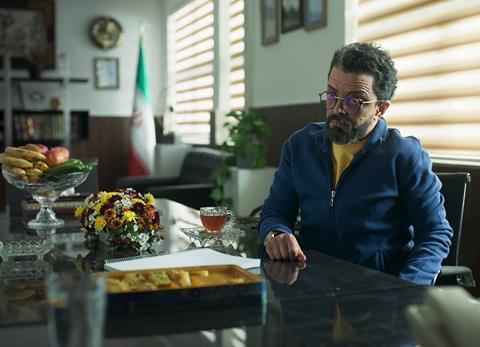
Terrestrial Verses, a satire of the Iranian regime, premiered in Cannes’ Un Certain Regard in 2023 before a festival run that included BFI London, AFI Fest and Chicago. A series of short vignettes that address the everyday societal pressures faced by Iranian citizens, the film sold more than 100,000 tickets in France when it was released there in March 2024 through ARP Selection. Films Boutique sold the film to multiple territories, including North America (KimStim).
Co-director Asgari made it to Cannes but his passport was confiscated on returning to Iran. During his travel ban, Asgari directed hybrid docufiction Higher Than Acidic Clouds – an autobiographical essay about what it means to be an artist working under oppression – which premiered at IDFA before travelling to Tallinn, Goa and Marrakech.
Milad Khosravi, who produced Terrestrial Verses and Higher Than Acidic Clouds for Seven Springs Pictures, alongside Asgari’s Taat Films, explains the risk to make these films is as financial as it is artistic. “There is no funding in Iran for independent filmmakers who want to have the freedom to express their own thoughts and not follow the rules.”
Khosravi sees “few opportunities” for Iranian independent cinema within the region or in Asia. “We are not eligible for most regional funds from MENA or Persian Gulf countries, and international sanctions make it complicated to receive money from international funds, which are already highly competitive. It’s a huge challenge to raise money as a producer.”
But, he asserts, “We have a desire to create art, and art has a way of finding its audience.”
European support
Indeed, many independent Iranian films are European co-productions that can benefit from a financial boost from overseas. Higher Than Acidic Clouds was co-produced by Yann Tonnar’s Luxembourg-based Manufactura Pictures; Critical Zone by Germany’s Counterintuitive Film; The Seed Of The Sacred Fig by Germany’s Run Way Pictures and France’s Parallel 45; and My Favourite Cake by France’s Caractères Productions, Sweden’s Hobab and Germany’s Watchmen Productions alongside Iran’s Filmsazan Javan.
Similarly, international distributors have not shied away from acquiring these titles. Luxbox’s Gautier describes Critical Zone as “a political statement, and the companies who bought it knew it was important it reach audiences for that very reason. No-one said they wouldn’t buy it because of the threats – if anything, the buzz made it even more sought-after.”
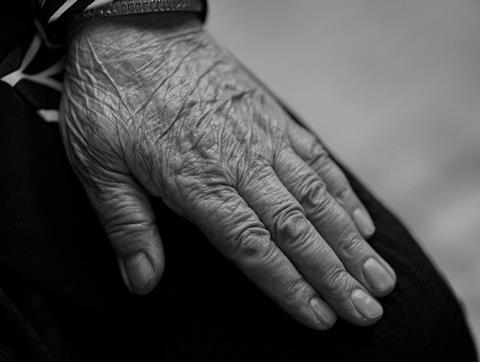
Filmmakers in Iran face “a complex situation”, says Simon. “Should they try to go as far as possible within the system and change things from the inside or must they leave to have more of an impact?”
Some choose to make films within the confines of the system, such as Babak Lotfi Khajepasha, whose family drama In The Arms Of The Tree is Iran’s official submission for the international feature Oscar in a selection process overseen by Farabi Cinema Foundation and approved by the country’s Ministry of Culture and Islamic Guidance.
Other directors continue to make films in exile, such as Tehran-born Danish resident Ali Abbasi, whose thriller Holy Spider – a Denmark-Germany-France co-production filmed in Jordan – premiered at Cannes and was Denmark’s entry for best international feature at the 2023 Oscars.
Iran’s Ministry of Culture and Islamic Guidance issued an incendiary statement, condemning the festival for what it called “an insulting and politically motivated move” and threatened “punishment” for anyone “inside Iran involved with the film”. Abbasi continues to make films in exile, including current awards contender The Apprentice.
For filmmakers opting to work outside the official system, Rasoulof says it is as important as ever to concentrate on story first. “When a film is made clandestinely, certain attention is given to it because of its political aspects, but it has to tell a story, people still have to like it. It can’t just rely on its politics.”






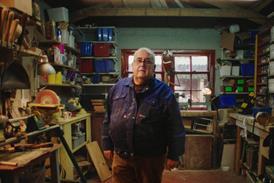
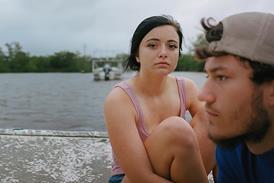





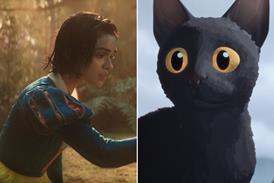








![[Clockwise from L-R]: Swindon Vue, Curzon Kingston, Edinburgh Everyman, Reel Farnham](https://d1nslcd7m2225b.cloudfront.net/Pictures/100x67/9/5/6/1446956_ukcinemas_321494.jpg)


No comments yet